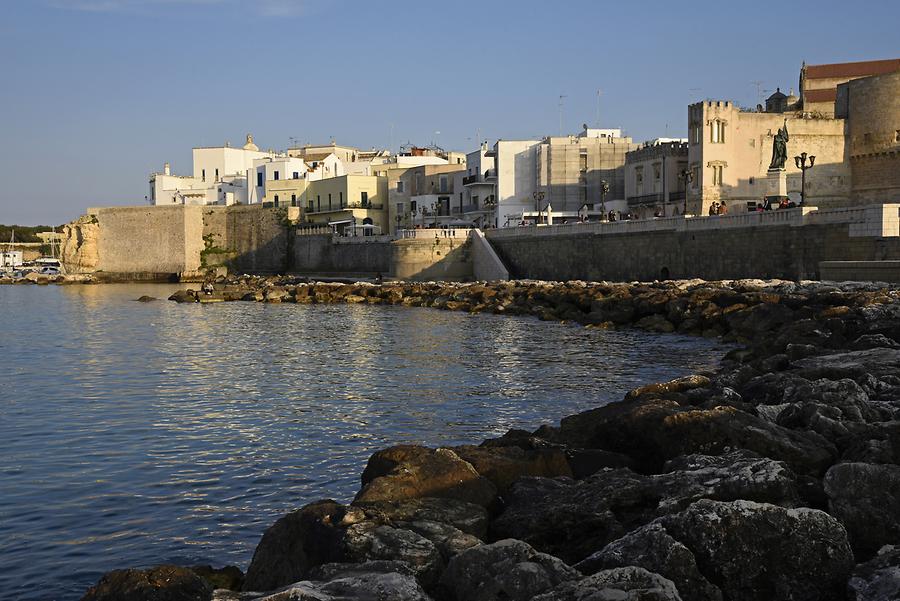Otranto#

Otranto, April 2017, © Gerhard Huber, under CC BY-NC 4.0 +Edu
Ihre Funktion als 'Tor zum Orient' bescherte der Hafenstadt Otranto
Otranto, Italy
schon seit jeher lukrative Einkünfte. Dann kam das Schicksalsjahr 1480. Die Küsten Süditaliens litten schon lange unter islamischen Piratenüberfällen, doch nun stand eine türkische Flotte aus 90 Galeeren und 18.000 Mann unter dem Kommando des berüchtigten Ahmed Pascha vor den Toren der Stadt. Schon 2 Wochen später kapitulierten die letzten 800 Einwohner. Da sie dem christlichen Glauben nicht abschwören wollten, wurden sie allesamt enthauptet. So entstand ein türkischer Brückenkopf in Süditalien. Auch wenn er nur ein einziges Jahr hielt, saß der Schock tief. Der Schreckensruf 'Mamma, gli turchi', d.h. 'Mamma, die Türken', hat sich bis heute im Sprachschatz Italiens gehalten. Abgesehen von diesem Schockerlebnis unterscheidet sich Otrantos Geschichte nicht von jener anderer Städte Süditaliens: zuerst kamen griechische Kolonisatoren, dann die Römer, gefolgt von den Langobarden, den Byzantinern, Normannen, Staufern und Aragonesen.
Its function as a 'gateway to the Orient' has always provided the port of Otranto
Otranto, Italy
with lucrative income. Then came the year of destiny: 1480. The coasts of southern Italy have long suffered from Islamic pirate raids, but now a Turkish fleet of 90 galleys and 18,000 men under the command of the infamous Ahmed Pasha stood at the gates of the city. Only two weeks later, the last 800 inhabitants capitulated. Since they did not want to renunciate their Christian faith, they were all beheaded. This is how a Turkish bridgehead came into existance in southern Italy. Even though it only existed for a single year, the shock was deep. The outcry 'Mamma, gli turchi', i.e. 'Mother, the Turks', has remained until today in Italian vocabulary. Apart from this shocking experience, Otranto's history is no different from that of other southern Italian cities: first the Greek colonizers, then the Romans, followed by the Lombards, Byzantines, Normans, Staufers and Aragonese.